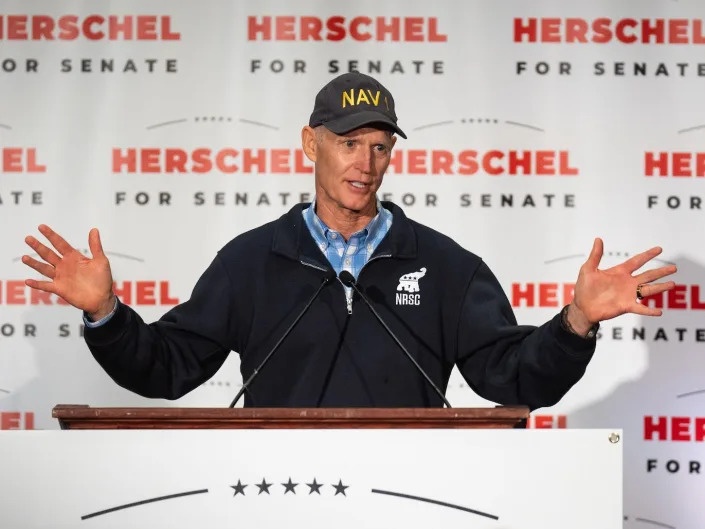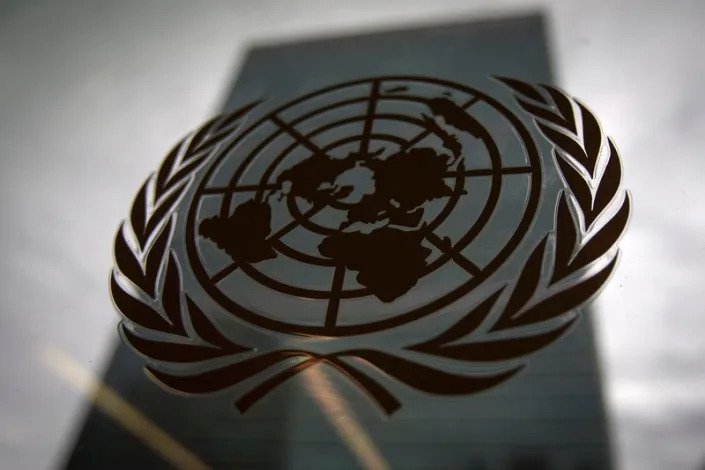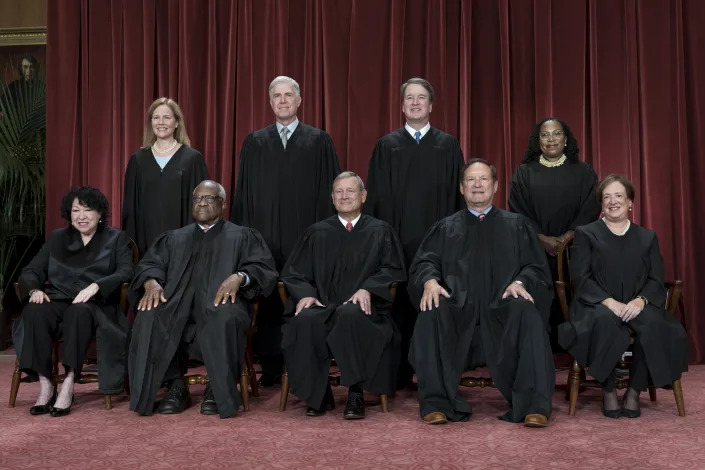Hyder Abbasi -
When world leaders, diplomats, campaigners and scientists from nearly 200 countries arrive for the United Nations climate change conference in Egypt Monday, their focus will be on curbing global warming.
But away from the five-star hotels and soft, sandy beaches in the Red Sea resort town where the huge conference is being held, rights groups and activists have accused Egypt of “greenwashing” — the act of claiming to be environmentally-friendly to enhance its reputation.
They have called for the world leaders attending the event, known as COP27, to confront the Egyptian government over its alleged human-rights abuses, particularly its treatment of political prisoners.
Hunger and water strike
Among the most prominent of those prisoners is Alaa Abdel-Fattah, a popular blogger, software developer and pro-democracy activist who rose to prominence during the popular uprising that ousted autocrat Hosni Mubarak in 2011.
In 2019, he was jailed for “joining a terrorist group” and “spreading false news” to undermine national security.
Amnesty International called the charges “bogus” and said Fattah’s trial was “inherently unfair,” in an open letter to Egyptian President Abdel Fattah el-Sisi last November. It said that Fattah, 40, a British national, was being prosecuted because of his activism and social media posts highlighting human rights violations allegedly committed by the Egyptian government.
Fattah has been on a hunger strike for more than 200 days and escalated his protest on Sunday to stop drinking water, his family said.
“He is very frail. Just skin and bones,” his sister, Mona Seif, told NBC News Thursday.
Seif, 36, who with her sister, Sanaa, 28, began a sit-in outside Britain’s Foreign, Commonwealth and Development Office in central London to highlight his case, said that her brother’s health was deteriorating rapidly, and the family was worried he could die in the coming weeks.
Amnesty’s head, Agnes Callamard, warned Sunday that Egypt had no more than 72 hours to save the jailed dissident's life.
“If they do not want to end up with a death they should have and could have prevented, they must act now,” Callamard said at a news briefing in the capital, Cairo.

Authors Join Sit-In For Jailed British-Egyptian Activist
Several high-profile figures, including the actor Emma Thompson and Nobel laureate Kazuo Ishiguro, have supported the family's campaign, along with the Swedish environmental activist Greta Thunberg, who joined their protest in London last month.
Thunberg said Sunday that she was boycotting the COP27 summit because of Egypt’s human rights record.
After speaking with the sisters on the phone, James Cleverly, Britain’s foreign minister, tweeted that the U.K. would “continue to work tirelessly for his release.”
But Seif said the U.K. government “didn’t seem to have an action plan,” and she was hoping COP27 — where Prime Minister Rishi Sunak arrived early Monday — would be used to highlight the plight of political prisoners in Egypt.
Related video: COP27 begins in Egypt, UN climate chief urges nations to shift focus towards 'implementation' of goalsDuration 2:23
“Regardless of how it ends, Alaa has already won this battle,” Seif said.
NBC News has emailed the Egyptian Ministry of Justice about the allegations made about the treatment of Alaa Abdel Fattah.
'Greenwashing' a government crackdown
Public protests have been effectively banned in Egypt, following a brutal clampdown on political dissent that began with the overthrow of Muslim Brotherhood leader and former president Mohammed Morsi in 2013, by el-Sisi, who was army chief at the time.
After he was elected president the following year, Sisi said these security measures were needed to stabilize his country, and a subsequent crackdown swept up liberal activists as well as Islamists.
Since then, little has changed, human rights groups say.
Environmental activists are among the tens of thousands of people, including political protesters and journalists, who have been languishing in Egyptian prisons for years, many without trial, according to Human Rights Watch, an international nongovernmental research and advocacy organization.
Basing his opinion on recent interviews conducted with people inside Egypt and other data, Richard Pearhouse, Human Rights Watch’s environment director, said by telephone Friday that the violent repression of civil society includes the “jailing and harassment of environmental activists and restrictions on groups researching the impact of climate change in the country."
“The Egyptian government has imposed arbitrary funding, research and registration obstacles that have debilitated local environmental groups, forcing some activists into exile and others to steer clear of important work,” he said.

COP27 (Peter Dejong / AP)© Peter Dejong
Ahead of COP27, Ahmad Abdullah, the co-founder of the Egyptian Commission for Rights and Freedoms, a Cairo-based nongovernmental organization, said research conducted by his organization’s data team showed at least 174 Egyptians had been arbitrarily arrested.
NBC News could not independently verify this number.
Abdullah added that Egyptian police had increased random stop and searches and had been inspecting the phones and social media activity of people on the streets of major cities.
That has led to the "greenwashing" accusations.
“They have two main objectives,” said Amnesty’s Middle East and North Africa researcher Hussein Baoumi.
“The first is pushing their climate agenda, which I would say includes environmental damage and reparations. But on the other hand, they want to greenwash their image and show to the world that they’re not responsible for human rights abuses,” he added.
NBC News emailed the Egyptian Ministry of Environment for comment.
The accusations are echoed by Hossam Bahgat, the executive director of the Egyptian Initiative for Personal Rights, a Cairo-based human rights organization.
"My organization has been working in the field of environmental justice for 10 years now," Bahgat said Saturday.
"And like most other environmental groups, we have had to stop working with communities, to stop doing any organizing on the ground. Not just because it became too dangerous for our staff and members, but [because it became] even more dangerous for the members of the communities themselves," he said.
Bahgat said that on account of his activism, the Egyptian government has had him under a travel ban for the past seven years and frozen his bank account and assets since 2016.
NBC News has emailed the Egyptian Ministry of Environment for comment.
Linking climate protests to human rights, Abdullah, of the Egyptian Commission for Rights and Freedoms, said, “Without freedom of assembly and association, you cannot achieve climate justice. So human rights should be at the center of climate justice, especially in a country like Egypt.
“So, whether you’re an environmental group or a human rights group, you are not allowed to speak up freely for the issues you’re campaigning for,” he said.
This article was originally published on NBCNews.com
AFP - TODAY
The possible death of jailed British-Egyptian dissident Alaa Abdel Fattah in prison is "in no one's interest", his sister Sanaa Seif said, nearly two days after he started refusing water.

Egypt's President Abdel Fattah al-Sisi delivers a speech at the leaders summit of the COP27 climate conference in Sharm el-Sheikh© Hamad AL-KAABI
Following a seven-month hunger strike during which he only had 100 calories per day, Abdel Fattah stopped drinking water on Sunday to coincide with the opening of the United Nations COP27 climate summit in Egypt.

Protesters gathered near the British embassy in the Lebanese capital Beirut to demand Abdel Fattah's release© ANWAR AMRO
Widely considered Egypt's best-known dissident, he has been sentenced to five years in prison for "spreading false news", having already spent the better part of the past decade behind bars.
"We are talking about an innocent man who has unjustly spent nine years in prison," Seif said from the climate summit in the Red Sea resort of Sharm el-Sheikh, where she travelled to appeal to world leaders to press for his release.

Sanaa Seif, sister of imprisoned British-Egyptian activist Alaa Abdel Fattah, travelled to the COP27 climate conference in Egypt's Red Sea resort city of Sharm el-Sheikh to campaign for his release© JOSEPH EID
Seif, her sister Mona, her mother Laila Soueif and her aunt, celebrated novelist Adhaf Soueif, have campaigned worldwide for the release of the activist, who gained British citizenship through his UK-born mother in April.
"We need sensible people to intervene," Seif said in an interview with AFP. "I put my hopes in the British delegation because as his sister, I can't give up or tell myself that my brother will die."
She acknowledged the risk of travelling to Sharm el-Sheikh, with its heavy security restrictions, saying: "I admit, I was afraid to come."
"But it's our last resort," she said.
"I came so that Alaa wouldn't be forgotten. I want to remind both Egyptian and British officials that my presence means that someone is dying and that it's possible to save him."
Related video: Sister on Alaa Abd El-Fattah's hunger strikeDuration 1:20
British Prime Minister Rishi Sunak raised Abdel Fattah's case in a meeting with his Egyptian counterpart Abdel Fattah al-Sisi on Monday, "stressing the UK Government's deep concern on this issue", a Downing Street spokesperson said.

Abdel Fattah -- a major figure in the 2011 revolt that toppled longtime president Hosni Mubarak -- is currently serving a five-year sentence for 'broadcasting false news' after having already spent much of the past decade behind bars© Khaled DESOUKI
Sunak said he "hoped to see this resolved as soon as possible and would continue to press for progress", the spokesperson said.
- 'Continue the fight' -
Amnesty International chief Agnes Callamard on Sunday warned that "there is not a lot of time -- 72 hours at best," referring to Abdel Fattah's possible remaining lifespan.
But Egyptian Foreign Minister Sameh Shoukry assured that the dissident "benefits from all necessary care in prison", in an interview with CNBC Monday.
Seif nonetheless warned that "the way his case is handled only accelerates the destabilisation of the regime".
She accused Egypt of using the COP27 summit to "erase its bad reputation in terms of human rights".
But despite clampdowns, Abdel Fattah's cause has been championed by activists, artists, rights defenders and politicians -- including the French president -- during the summit.
France's Emmanuel Macron on Monday said he received an assurance from Sisi that the Egyptian president was "committed to ensuring that (the) health of Alaa Abdel Fattah is preserved".
It came as concern continued to grow over his condition.
On Monday morning, "my mother went to wait outside the prison to check on him after 24 hours without water," Seif said.
By evening, she still had not received word from her son, nor had she been able to deliver the clothes and books she drops off to him every week.
"The ball is in the politicians' court, it is up to them to do their job," Seif continued.
"We continue the fight and we must not lose hope."
bur/jsa/pjm






